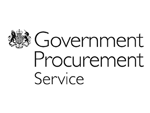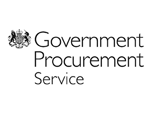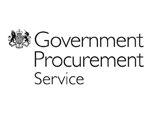
May 2012 – The Corporate Leaders Group co-hosted with the Department of Business, Innovation and Skills a very successful launch of three new Joint Public–Private Low Carbon Procurement Compacts at the Royal Society.
About the Compacts
"I believe that Government has a key role to play in ensuring more effective supply chain engagement, and by signalling demand for low carbon innovation. This important initiative will help to drive investment in new and better goods and services."
The Rt Hon Vince Cable MP, Secretary of State for Business, Innovation and Skills
Down To Zero Launch
The Corporate Leaders Group co-hosted with the Department of Business, Innovation and Skills a very successful launch of three new Joint Public–Private Low Carbon Procurement Compacts at the Royal Society.
The event launched the low carbon procurement Compacts in three different areas: transport, catering and biomethane. Each has major potential to drive real change in the market, with an increase in affordable and cutting-edge low to zero carbon solutions at a scale to drive down emissions in these areas.
We were delighted to have Lord Sainsbury (Chancellor, University of Cambridge) chair a panel discussion with Rt Hon Vince Cable MP (Secretary of State, BIS), Neil Carson (CEO, Johnson Matthey), Peter Simpson (CEO, Anglian Water Services) and Martin Chown (Executive Director of Government Procurement Services). The launch was attended by over 100 people from key government departments, leading private sector companies, public bodies, potential suppliers, and the media.
Background
The UK Government and The Prince of Wales's Corporate Leaders Group (CLG) are both committed to reducing carbon emissions and supporting a rapid transition to a low carbon economy, but this requires a dramatic increase in the supply of affordable low carbon goods and services.
These goods and services are not currently reaching the market at the pace, in the quantities and at the price needed, leaving customers with few options. However, a visible, credible and committed customer demand could give suppliers a key incentive to invest in developing the low carbon products of the future.
Procurement Compacts
The CLG and the Department for Business, Innovation and Skills (BIS) have therefore joined forces to address this problem by bringing together major public and private sector customers in Procurement Compacts for new, 'low to zero carbon' goods and services.
These Compacts demonstrate to potential suppliers that there is a substantial and organised market demand for cost-effective, low carbon transport and catering, and for heat and power from renewable biomethane.
By sending a clear direction of travel message to suppliers and by demonstrating real demand, this joint public–private sector initiative aims to create market opportunities for innovating companies and help to generate growth and jobs in the low carbon economy.
Downloads
Read an introduction to the project by the Secretary of State, Rt Hon Vince Cable MP and Neil Carson, CEO, Johnson Matthey.
Media Interest
Low to Zero Carbon Transport Procurement Compact
"We have made important strides in reducing the carbon footprint of our current fleet framework, but more operationally viable options are urgently needed. This Procurement Compact provides an important focus for both customers and the supply chain to work together to bring progressively lower-carbon vehicles to the market in a cost-effective way."
Steve Duckworth, Head of Sourcing & Category Management – Travel & Fleet,
Government Procurement Service
This Procurement Compact articulates a market demand for vehicles that can provide a clear path to zero carbon emissions, while meeting our needs for rapid refuelling times and long range. In doing so, we hope to support the investment by suppliers to develop the vehicles, the fuel, and fuelling infrastructure required.
The customers involved in this Procurement Compact have a common story. We need to decarbonise our fleet operations and to this end have introduced a range of carbon-reduction measures and experimented with alternative vehicle technologies such as battery electric vehicles. We welcome these technologies and the incentives that support them. However, a range of technologies are needed if we are to accelerate progress towards the long-term aim of zero carbon in a way that is practical for our fleets.
Download
Media Interest
Signatories
Towards Zero Carbon Catering
"We have been working with our suppliers to drive down carbon emissions in our supply chain in general but we’d now like to focus in on our catering solutions as this is an area where we recognise we can make some significant carbon reductions. With over 80 office locations with a catering offering, we have an opportunity to make a real difference and are delighted to be part of this initiative."
Chris Newton, Facilities Management Director Lloyds Banking Group
This Procurement Compact articulates a market demand for progressively lower carbon catering goods and services. We wish to initiate a dialogue with the supply chain and other stakeholders on how carbon emissions resulting from manufacture, supply and operation of catering services can be progressively reduced in future contracts.
While it is clear that both the supply chain and customers have taken major strides to improve the sustainability of their goods and services, the focus has predominately been more generally on sustainability and waste as opposed to reducing carbon emissions arising from catering operations. Yet the carbon emissions arising from the manufacture, supply, transport and operation of catering services represent a significant proportion of an organisation’s carbon footprint.
The signatories of the Procurement Compact have different approaches to the delivery of their catering operations but essentially they fall into two categories:
1. A fully managed catering service, where the customer simply provides a footprint from which the contractor operates. The contractor manages the supply chain through sub-contracts to deliver meals on the table.
2. A partial service, where the customer procures one or more of the elements that make up a catering service from one or multiple suppliers, including:
- Food goods
- Transport and logistics
- Kitchen equipment
- Vending equipment
- Maintenance of equipment
Download
Media Interest
Signatories
 |
 |
 |
|---|---|---|
 |
 |
 |
 |
 |
 |
 |
 |
 |
Heat and Power from Renewable Biomethane
"Renewable biomethane supplied through the gas grid would provide a step change in the delivery of sustainable energy to BT. By giving a forward commitment to buy renewable biomethane we aim to stimulate additional production that we can access via the national gas network to fuel our buildings."
Robert Williams, Head of Renewables, BT
This Procurement Compact articulates a market demand for renewable biomethane that can be used to generate cost‐effective heat or power in urban buildings remote from biomethane generation.
The customers involved in this Procurement Compact all wish to increase the use of renewable fuel to provide heat and power to their buildings. We have adopted or explored use of existing solutions such as photovoltaics (PV) and wind turbines but these can only address a small proportion of our needs and can be difficult to deploy, for example when our properties are located in urban areas. We are calling on the supply chain and stakeholders to enable the progressive expansion of the use of sustainably produced biomethane as a renewable fuel for onsite heat and power.
We have identified that biomethane could make an important contribution to our renewable energy requirements if its use could be decoupled from its point of generation using the gas grid. In this way biomethane, generated in rural areas could be transmitted through the gas grid to provide renewable fuel for heat and power at our properties.
Download
Media Interest






























